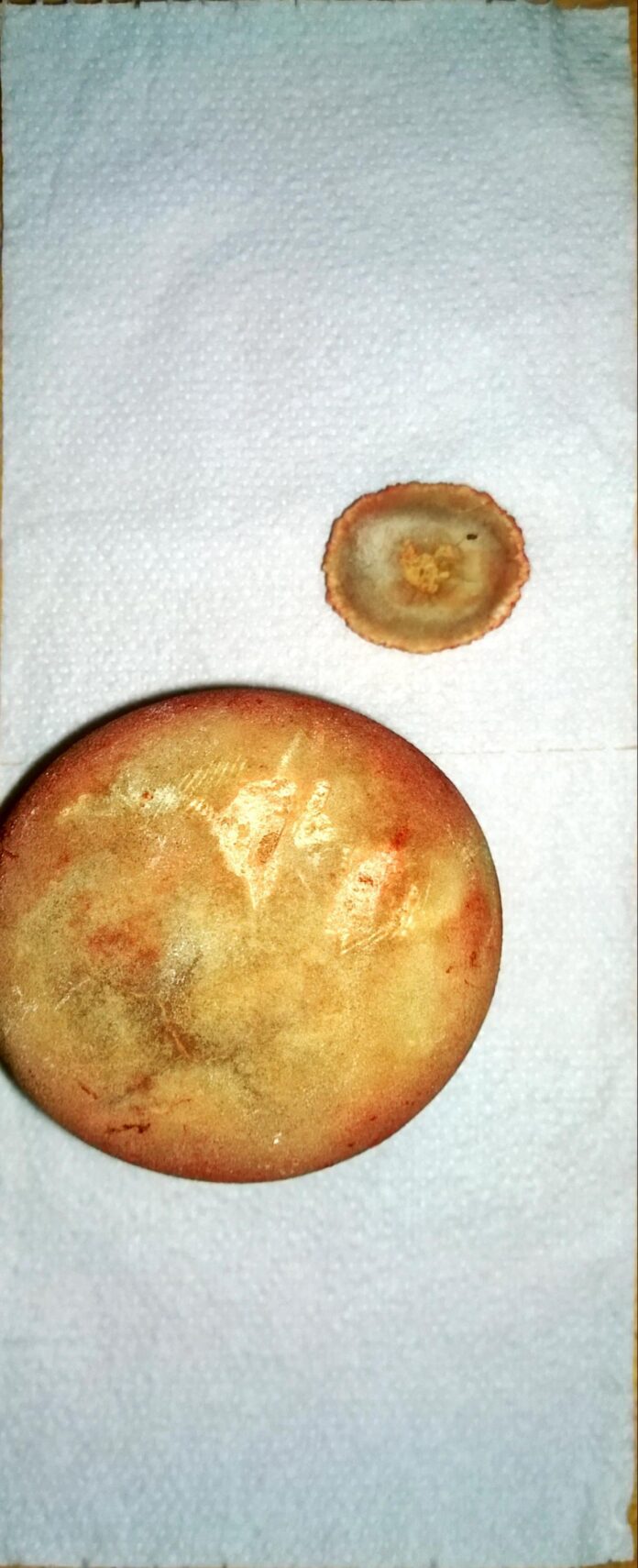
Bladder stones, also known as vesical calculi, are hard mineral deposits that form in the bladder. They can cause severe pain and discomfort, as well as other complications if left untreated. It is important to be aware of the symptoms of bladder stones so that you can seek medical attention as soon as possible.
When bladder stones are small, they may not cause any symptoms and can pass through the urinary system without any complications. However, larger bladder stones can cause a range of symptoms that can significantly impact a person’s quality of life. Common symptoms of bladder stones include urinary problems, discomfort, and pain in the lower abdomen, and frequent infections.
If you suspect that you may have bladder stones, it is important to seek medical attention promptly. In this article, we will explore the symptoms of bladder stones and how they can be diagnosed and treated.
1. Urinary Problems
When bladder stones are present, they can obstruct the flow of urine from the bladder, leading to urinary problems such as difficulty urinating, weak urine flow, and incomplete emptying of the bladder. This can cause discomfort and may lead to urinary tract infections. If you are experiencing any urinary problems, it is important to consult with a healthcare professional to determine the cause and receive appropriate treatment.
2. Discomfort and Pain in the Lower Abdomen
The presence of bladder stones can cause discomfort and pain in the lower abdomen, particularly during urination. This pain may be sharp or dull and can be accompanied by a feeling of pressure or fullness in the bladder. If you are experiencing persistent discomfort or pain in the lower abdomen, it is important to seek medical attention to rule out the presence of bladder stones and other urinary tract issues.
3. Frequent Infections
Bladder stones can provide a breeding ground for bacteria, leading to frequent urinary tract infections. If you are experiencing recurrent urinary infections without any apparent cause, it is important to consult with a healthcare professional to determine if bladder stones are the underlying issue. Treating bladder stones can help prevent further infections and improve overall urinary health.
4. Blood in the Urine
The presence of bladder stones can cause irritation and inflammation in the bladder, leading to the presence of blood in the urine. If you notice any blood in your urine, it is essential to seek medical attention promptly to determine the cause and receive appropriate treatment. Blood in the urine can be a sign of various urinary issues, including bladder stones, and should not be ignored.
5. Painful Urination
Bladder stones can cause pain and discomfort during urination, which can range from mild to severe. This can make it very uncomfortable to empty the bladder, leading to further complications and discomfort. If you are experiencing painful urination, it is important to consult with a healthcare professional to determine the cause and receive appropriate treatment to alleviate your symptoms.
6. Frequent Urges to Urinate
Bladder stones can irritate the bladder, leading to frequent urges to urinate. This can be distressing and disruptive to daily life, as it can lead to frequent trips to the bathroom and difficulty in fully emptying the bladder. If you are experiencing frequent urges to urinate without any underlying cause, it is important to seek medical attention to determine the cause and receive appropriate treatment.
7. Difficulty or Pain During Sexual Intercourse
Bladder stones can cause discomfort and pain during sexual intercourse, particularly if they are located near the neck of the bladder. If you are experiencing pain or discomfort during sexual intercourse, it is important to consult with a healthcare professional to determine the cause and receive appropriate treatment.
8. Inability to Urinate
In severe cases, bladder stones can lead to a complete blockage of urine flow, resulting in the inability to urinate. This can be a medical emergency and requires immediate medical attention to prevent further complications. If you are unable to urinate, it is crucial to seek emergency medical care as soon as possible to avoid serious consequences.
9. Foul-Smelling Urine
The presence of bladder stones can cause urine to develop a foul smell, which can be indicative of an underlying urinary issue. If you notice that your urine has a strong, unpleasant odor, it is important to seek medical attention to determine the cause and receive appropriate treatment.
10. Nausea and Vomiting
In some cases, the presence of bladder stones can cause nausea and vomiting, particularly if they lead to a urinary tract infection or a complete blockage of urine flow. If you are experiencing persistent nausea and vomiting, it is important to consult with a healthcare professional to determine the cause and receive appropriate treatment.












